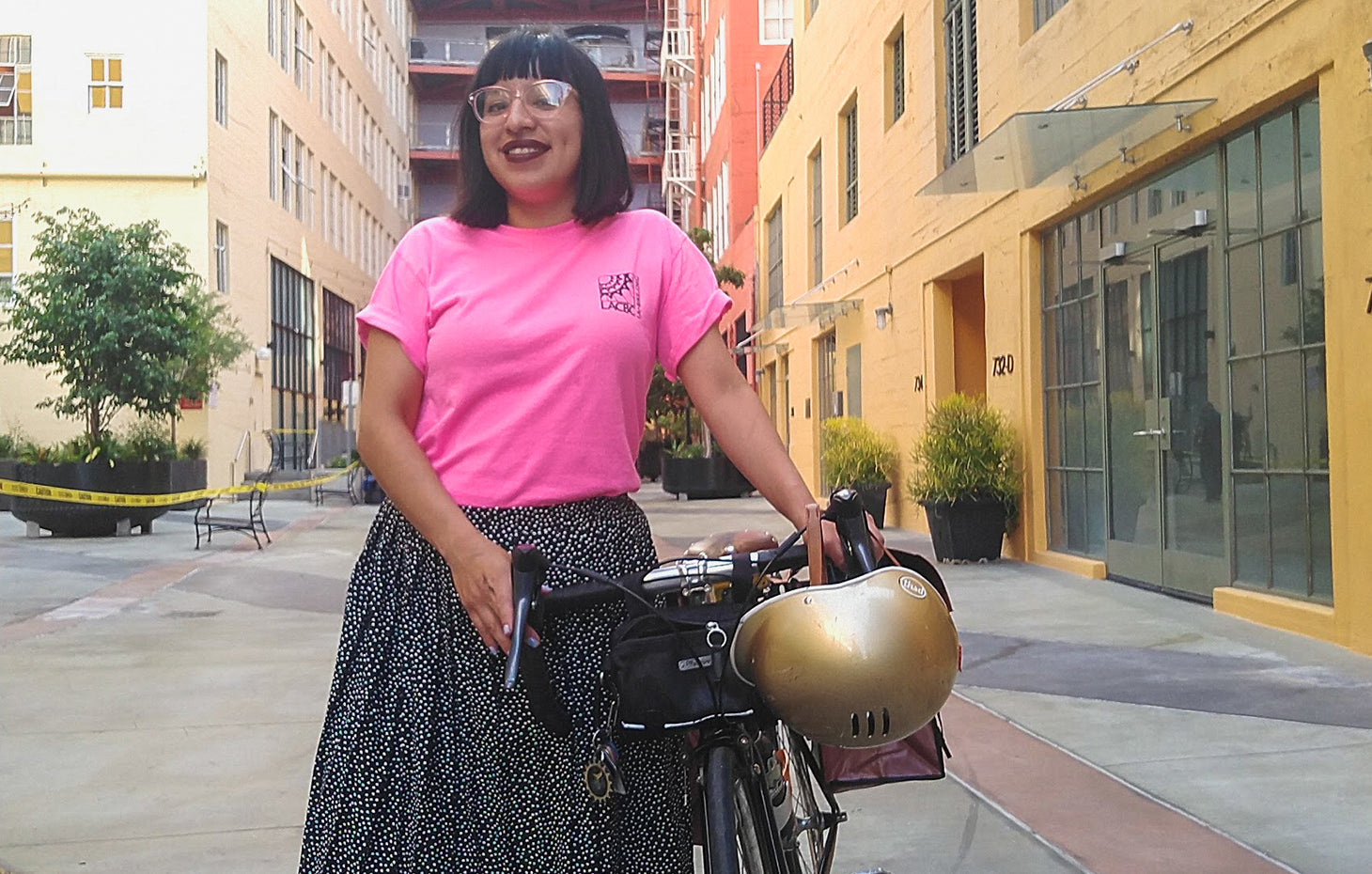
As a brand, we believe that communities are made stronger by bringing many voices to the table – and making sure those voices are heard. And in a traditionally male-dominated industry, we hope to open the door to a more diverse audience and create a strong community of urban riders that is open and accessible to people of all races, ages, gender identities, and sexual orientations.
As an LA-based brand, we here at Thousand are in love with our city and are passionate about seeing it continue to grow and flourish. We are passionate about urban mobility and want Los Angeles as well as cities around the world to be more accessible for commuters and people looking to get around without cars. We chatted with Areli Morales, a LA native and local activist about her work to create safer streets for riders and the future of urban commuting in LA county.
THOUSAND: Tell us about yourself.
ARELI MORALES: I am a 1st generation LA native raised in Venice Beach, now living in Long Beach. I grew up environmentally aware and I spent summers in my ancestral home of Oaxaca, Mexico, where I would take bike taxis and bring my own bag to market. In Venice, I grew up bus dependent and riding bikes with friends and family. Our disinvested communities and unsafe streets kept us on bike paths. My frustration at the unreliable buses made me commute to work by bike. The magical energy of party rides and group rides eventually brought me to the streets outside the West LA bubble. After seeing friends from those rides injured, I started volunteering to create change. This brought me to the nonprofit world, working on projects at CicLAvia, People for Mobility Justice, and eventually the Los Angeles County Bicycle Coalition. I am now working and volunteering towards safer, active streets, locally in Long Beach and throughout the greater LA County. I choose to live car-free in a walkable neighborhood that’s notorious for not having parking but is near transit and has world-class bike infrastructure.

T: What does the future of urban riding/commuting look like to you?
AM: To me, the future of urban riding and commuting looks multimodal, with safer, more reliable, and more enjoyable alternative modes of transportation. The future has more dedicated bus lanes, more dedicated bike/mobility lanes, more shaded rest areas, more rail connections, more trail connections, more bike hubs, better bike space on trains, wider sidewalks, and skateable corridors. Safer commuting also involves slowing down vehicles and buffering spaces between private vehicles and humans on different, non-motorized modes of transportation.
T: What are your tips for anyone else who wants to go car-free in a big city?
AM: Be prepared and be optimistic, remember how much money you're saving and how much time you’re gaining. Diversify your commute, challenge yourself to ride your bike the entire route or get on a bus or train – the more options the better. If you bring your bike on public transportation, always lock your front wheel to your frame or the rail. Bring books, headphones, download podcasts, download music, catch up on emails, scroll social media... bus/train time is your time.
T: What are your recommendations for resources or groups that advocate for more diverse and inclusive riding in the US?
AM: There are so many amazing groups nationwide and globally. Check Bike!Bike! International, the volunteer-led, traveling conference I attend and have helped organize. For more diverse, inclusive riding, start by going to local Bike Co-ops. Volunteer Co-ops are the lungs of the bike world, they can connect you with groups that are working on all levels of bike issues. Always check in with the bike coalitions and mobility justice groups. The League of American Cyclists has a comprehensive list of nationwide non-profits. My major recommendation for advocating for safe streets is to become familiar and friendly with local officials and transportation leaders. From my experience building trust and dialogue will save both of you years of work, often good intentions are muddied with miss understandings.

This March, join us in spreading the spirit of diversity and inclusion. Uplift and celebrate women in your own life by sharing how they are pioneering change and inspiring others with #WomenOfThousand.

